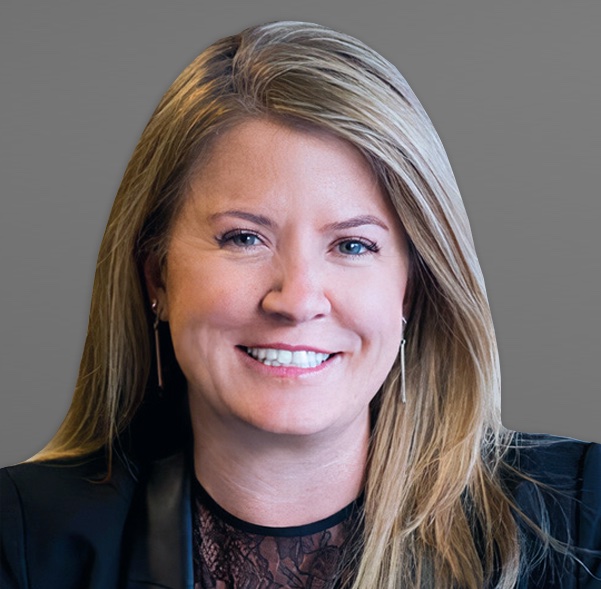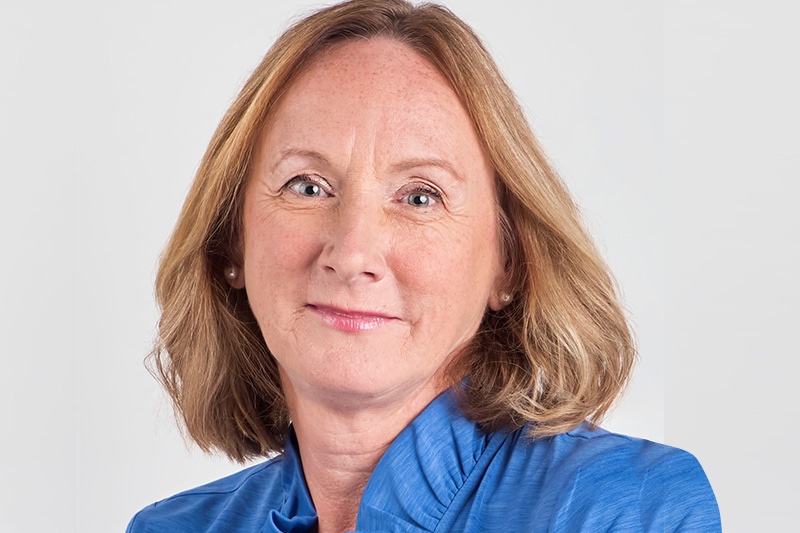“I heard a comment the other day that tech is an industry founded by men making things for men” – Fidelma Russo, CTO at HPE.
Today, on International Women’s Day, we wanted to check in with a group of well-known women execs in the storage industry to get their insights into the tech world they operate in.

Barbara Murphy, VP of cloud strategy at WEKA, told us: “I have been personally very blessed to work for some great ‘women-friendly’ companies that have provided great opportunity, and [CEO] Liran Zvibel is a huge advocate for ‘all gender’ equality.
“That said my favourite WEKA experience was at a meeting in London at a financial institute. I went as the subject matter expert accompanying the male sales leader. The entire room (of men) gravitated to him and bombarded him with technical questions and did not even give me a chance to introduce myself. It was like I was invisible.
“After doing his best to keep up with ever more detailed technical asks my sales leader finally said, ‘Maybe we should give Barbara a chance to introduce herself and answer that question.’ All ended well (they are now a WEKA customer) but I got a good dose of experience in what gender stereotyping feels like.”
Another example: Rachel Pedreschi, VP of community and developer relations at Imply, said: “I’ve been the technical spokesperson lead for my organisation countless times. Yet it is not an uncommon occurrence that during the Q&A session following my presentation, the audience has directed their questions to my male counterpart. Even when that male has looked to me for guidance, and I would take the lead in providing the technical response, the next questions would, again, be directed back to my male colleague.”
Such gender stereotyping can hold people back in their early years, which has a knock-on effect in their later careers. Overlooking female talent holds business back – and diversity is a good thing. We put the same questions to two women in our storage industry to get a better view of the issues.
Anuya Upadhyay, Director, International Communications (APJ, EMEA and LatAm) at Pure Storage

Blocks & Files: Do women bring a unique viewpoint to business decision making and team building? Does gender matter?
Anuya Upadhyay: Life experiences shape an individual’s personality and the fact that men, women, and trans people have likely had different experiences implies that they probably also have different viewpoints. And though behaviours in the modern workplace are becoming more consistent across genders, I’ve personally found women to be more empathetic, open, and collaborative. Of course, it’s important for a successful team to have diversity in the workplace, be it in respect of gender, cultural background, education or life experience in general.
Blocks & Files: Have you been conscious of a glass ceiling?
Anuya Upadhyay: It wasn’t something I was conscious of when I first started my career and I have been fortunate to work in meritocratic companies. However, it is difficult not to notice a glass ceiling in the wider world by simply looking at the numbers. How many women are CEOs, prime ministers, presidents, or holders of other senior roles? And while things may be getting better, change is not happening fast enough.

Molly Presley, SVP Marketing at Hammerspace
Blocks & Files: Do women bring a unique viewpoint to business decision making and team building?
Molly Presley: Definitely. I have read in many business best practices that half of a leadership team should be female. I completely agree with this. My experience in executive staff decision making has been that men are more quick to comment, where women tend to listen longer and hold out to express an opinion until all have been heard. I think women also bring deeper relationship building to a team.
What I would take issue with is a company saying a leadership team must be 50/50 men and women if the total staff of the company is 90 per cent men and 10 per cent women. The right talent needs to be in the right role, but, given an equal balance of qualified candidates, a nicely blended team will likely be the highest performing.
Now, no generality applies to every individual but this has largely held true in my career.
Blocks & Files: Does gender matter?
Molly Presley: Absolutely and in many ways. A mixed gender dynamic is different. People behave differently, get different perspectives, and a broader part of the population is represented when different genders are represented.
Blocks & Files: Have you been conscious of a glass ceiling?
Molly Presley: I have found career opportunities in high tech for women to abound, both in individual contributor and in management roles. So career advancement has been less of the “glass ceiling” issue than pay. I do believe women tend to be paid less for comparable roles. Most pay data I have seen for the industry agrees. In most cases, I think a woman is much less likely to be assertive in pay negotiations.
Social change
Catherine Qu, VP of growth marketing at Imply, commented: “For so long, women have relied on the quality of their work to speak for them, but that’s an outdated way of thinking. In today’s world, women need to be forthright, direct and confident talking about their accomplishments and acting as a self advocate.”
Rachel Pedreschi, VP of community and developer relations also at Imply, said: “We must teach girls and women to assert themselves, which historically has not typically been a trait to which we are attributed (not positively, anyway). At the same time, we need to teach everyone to stop making assumptions based on the gender of the person they see in front of them. Technical people come in all shapes and sizes but there has been a tendency to assume that males are the more technical ones.
“As women, the more we speak up, actively pursue and contribute to typically male-dominated fields, the more we can help to shatter these preconceived notions.”
Role models, mentoring and the opportunity gap

Russo at HPE told us: “The tech industry has improved at attracting and retaining female talent over the years, but the progress is slow and we must do better … Tech must offer career opportunities and experiences that respect employees’ unique circumstances, align with their values, and support personal well-being.
“We have a responsibility to act as role models to the next generation of female leaders and STEM students.”
Qu added: “Women should keep an eye out for each other. If you see a woman trying to speak up in a meeting but being ignored, say something about it and make sure that woman is provided the opportunity to share her thoughts.”
Samina Subedar, StorCentric VP of marketing and communications, supported this idea: “I encourage everyone to give purposeful thought to how they can actively support a girl’s or woman’s goal of entering a career in technology or their chosen field – whether it is donating your time or from your wallet.”
There is, for women, an opportunity gap, according to Lindsay Mantzel, Senior Full Stack Developer at StorCentric company Retrospect: “We live in a world where perceptions of what it means to be a woman or a man are still very much defined by stereotypes … I hope people take action – there are so many ways to do so – from acting as a mentor, to speaking at a career fair at schools, to simply donating to an organisation dedicated to the cause.
“In other words, let’s help close the opportunity gap, with a goal of ensuring girls and women have all the support and resources necessary to reach their full potential.”
Business should recognise that it’s all too easy to pay for female talent and not use it, nurture it or manage it to its best potential. In Fidelma Russo’s view: “The tech industry has improved at attracting and retaining female talent over the years, but the progress is slow and we must do better. Tech must offer career opportunities and experiences that respect employees’ unique circumstances, align with their values, and support personal well-being.
“One of the reasons I came to HPE is because it has embedded into the culture a shared understanding that innovation is fueled by an environment where team members feel appreciated for their diverse perspectives and experiences.”
Subedar said: “Diversity in the workplace isn’t just the right thing to do, it is the smart thing. Bringing diverse people and thereby diverse perspectives into the workplace leads to a greatly enhanced ability to generate ideas and problem solve, which lead to solutions, innovation and business transformation.”








